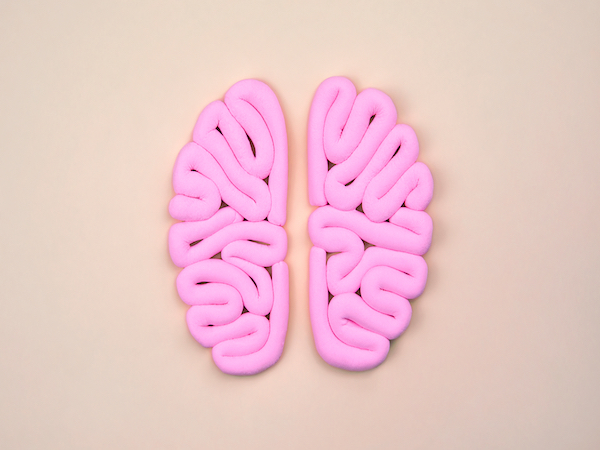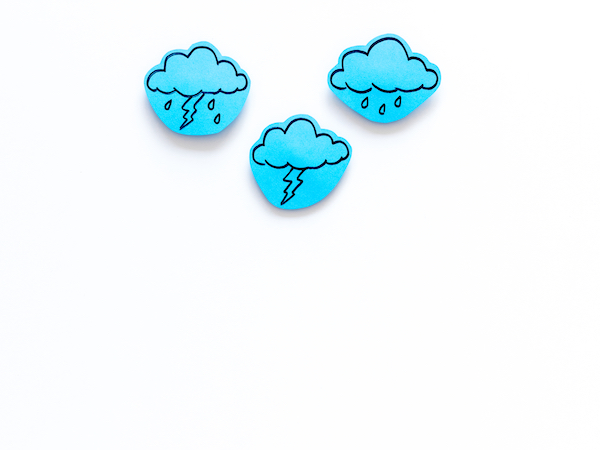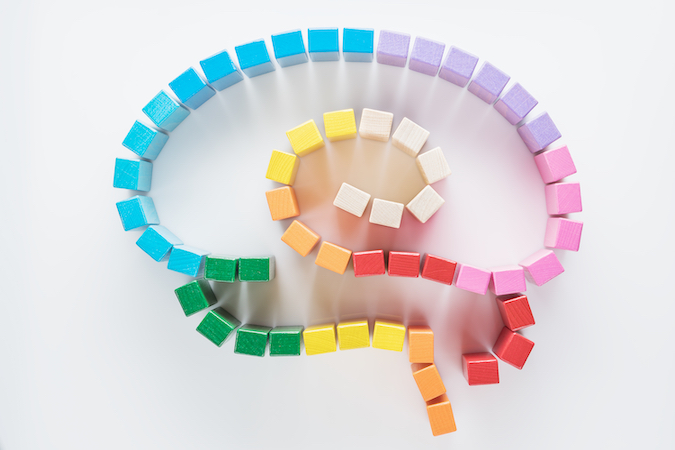For those that are struggling with major depressive disorder and generalized anxiety disorder, it can be challenging understanding how different facets of these conditions impact you, both individually and in tandem.
To help you better understand two core elements of mixed anxiety depressive disorder, General Anxiety Disorder (GAD) and Major Depressive Disorder (MDD), the team at Felix has put together this page of useful information for you.
Throughout this blog you’ll learn the differences and similarities between MDD and GDD symptoms, treatments, and how these two conditions can be experienced together or uniquely..

Talk to a healthcare practitioner about treatment
Get support for anxiety, depression, and mental wellness 100% online with fast access to care.
Are GAD & MDD Both Mood Disorders?
Yes, Major Depressive Disorder (MDD) and Generalized Anxiety Disorder (GAD) are both considered mood disorders.
However, this doesn’t mean that they’re the same, or that they should always be treated using the same methods. That’s why it’s so important to get an official MDD and/or GAD diagnosis from your practitioner, before seeking treatment options.
If you’ve already spoken to your physician/psychotherapist about these conditions to get a MDD and/or a GAD diagnosis, and you’re interested in discussing potential treatments options, complete a short assessment to talk to a practitioner at Felix today.
Difference Between GAD & MDD Symptoms
The differences between MDD and GAD symptoms are related at their core to the differences between anxiety- and depression-based conditions.
At its core, depression tends to present as feelings of despair and sadness, whereas anxiety is more often associated with worrying, fear, and existential dread, which is disproportionately severe in relation to the situation.
Both of these types of conditions affect you physically, but they do so in different ways. If you tend to experience anxiety, you’ll be likely to experience symptoms like restlessness, tenseness, excessive sweating, heart palpitations (racing heartbeat), or uncontrollable fidgeting.
Conversely, if you’re experiencing depression, you’ll be more likely to have slowed movements and speech, changes to your appetite (up or down), and either weight loss or gain.
Similarities Between GAD & MDD Symptoms
There are some symptoms for both anxiety and depression that overlap. Let’s look at an official symptom list for anxiety versus depression, according to the Diagnostic and Statistical Manual of Mental Disorders, Fifth Edition (DSM-5).
SIDE NOTE: This is the handbook providers in the US use to diagnose MDD and GAD, as well as other mental health conditions.
Generalized Anxiety Disorder Symptoms:
- Excessive anxiety or worrying
- Easily fatigued
- Sleep disturbances
- Difficulty concentrating or moments of your ‘mind going blank’
- Restlessness
- Feeling on edge
- Irritability
- Muscle tension
- Difficulty controlling thoughts of worry or fear
- Problems in your daily life stemming from anxiety
Major Depressive Disorder Symptoms:
- A constant depressed mood
- Low energy or unexplained fatigue
- Sleep disturbance
- Difficulty concentrating or thinking clearly
- Decreased efficiency
- Loss of interest in previously enjoyed activities
- Changes in appetite (up or down)
- Weight loss or gain
- Psychomotor changes (slower or faster)
- Recurrent thoughts of death or dying
- Suicidal ideation or attempts
As you can see, there are a few shared symptoms of mixed anxiety depressive disorder (MDD + GAD), including:
- Changes in sleep patterns (sleeping too much or too little)
- Challenges with concentration and/or thinking (anxiety could present as ‘mind going blank’ while depression may present as difficulty making decisions)
- Having ongoing low energy or being easily fatigued
As well as these similarities, both anxiety and depression can impact your mood, your thought patterns, how you see yourself (self-image), as well as how you interact with others and the world around you.
It’s also worth noting here that there are similar changes in the brain that lead to both anxiety and depression. Research has shown that among people with anxiety and depression, there are some shared brain changes in the areas that manage cognitive control, executive functioning, as well as emotional regulation.
Can Someone have Both GAD & MDD Together?
Yes, you can absolutely have both anxiety and depression at the same time.
In fact, among people with depression, 45.7% also have an anxiety disorder at some point in their life. Conversely, for people with anxiety disorders, between 20% and 70% will also experience depression in their lifetime, with the variance relating to different types of anxiety disorders.
The reasons for this complex relationship between anxiety and depression are complex, but there are a number of different theories about the shared causes and risk factors. Some of these include:
Chronic Disease & Pain
If you’re living with a chronic illness or chronic pain, you’re more prone to both anxiety and depression, due to the effects of these conditions on your daily quality of life.
Genetics
There are a high level of shared genetic risk factors that exist between anxiety and depression, but unfortunately, there’s still a lot that scientists have yet to learn about the connection between these two conditions.
The ongoing Genetic Links to Anxiety and Depression (GLAD) study, is the most extensive genetic study on this study that currently exists, with over 40,000 active participants.
Non-Genetic Risk Factors
There are a number of other characteristics that both anxiety and depression have in common; some of which could explain the overlap between the two conditions. Some of these potential characteristics include: childhood trauma, neglect, parenting style, and/or stressful events.
Personality Traits
Some studies have identified the neuroticism personality trait as a potential link to higher risks of experiencing both anxiety and depression.
Does Medication Exist for GAD & MDD Diagnosis?
Yes, medications can be prescribed to individuals, who are experiencing a number of anxiety and/or depression-based conditions, such as MDD and GAD treatments.
In fact, because these treatments are often similar, mixed anxiety depression disorder treatments are often similar or the same as MDD and GAD treatment options.
Comparing Treatments for GAD & MDD
Treatments for MDD and GAD are decided upon after a conversation with your practitioner about your specific symptoms, their severity, and your preferences, as well as your health and medical history.
It’s important to note that the type of mixed anxiety and depressive disorder treatments suggested will vary from person to person, though many of these treatment plans are similar.
The type of medication selected for you, as well as the dosage recommended, will depend on your unique experience, as well as the advice of your practitioner.
When Should I Talk to My Healthcare Practitioner About GAD & MDD?
If symptoms of mixed anxiety and depressive disorder, MDD and/or GAD are starting to impact your daily quality of life, it’s time to talk to a practitioner at Felix about what treatment options might be available to you.
You don’t have to manage these challenging mental health conditions on your own. Felix is breaking down mental health stigmas, and working tirelessly to make appropriate mental health treatments available for any Canadians that need them.
With Felix in your corner, you can take back your daily quality of life, so that you can get back to living life on your terms – the way it should be.




